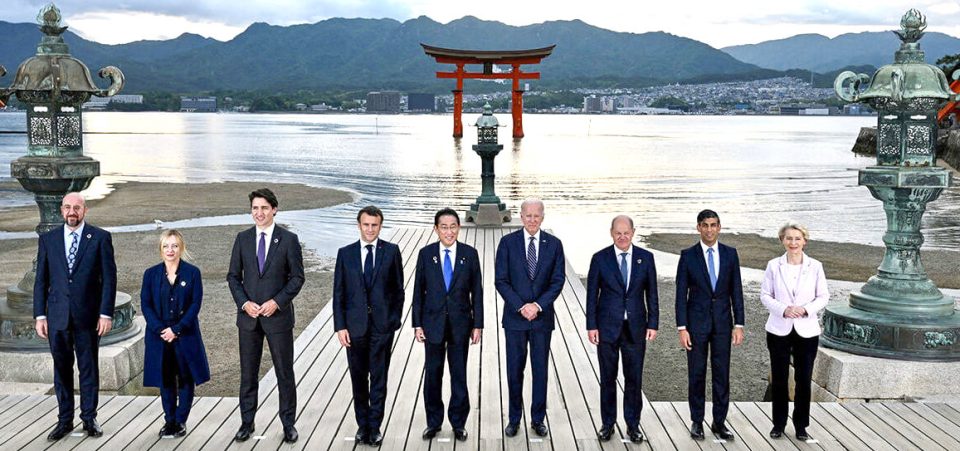The international community is increasingly apprehensive about the tactics employed by Beijing in recent years. China has not hesitated to impose trade sanctions on countries that displease it, as demonstrated in cases involving South Korea and Australia. The European Union was particularly alarmed when China blocked Lithuanian exports after the Baltic country allowed Taiwan to establish a de facto embassy on its soil.
Given these circumstances, it is hardly surprising that the Group of Seven (G7) nations have denounced what they perceive as a “disturbing rise” in the “weaponization of economic vulnerabilities.” This coercion, they argue, is aimed at undermining the foreign and domestic policies of G7 members and their global partners.
In response, the G7 has called for a policy of “de-risking,” which is promoted by the attending representative, Ms. von der Leyen. This approach represents a more moderate alternative to the United States’ concept of “decoupling” from China. De-risking entails adopting a tougher diplomatic stance, diversifying trade sources, and safeguarding trade and technology.
Additionally, the G7 has initiated a “coordination platform” to counter coercion and collaborate with emerging economies. Although the exact workings of this platform remain unclear, it is likely that countries will assist each other by increasing trade or providing funding to circumvent any barriers erected by China.
The G7 also intends to strengthen supply chains for crucial goods such as minerals and semiconductors while bolstering digital infrastructure to safeguard against hacking and intellectual property theft.
However, the most significant measure the G7 plans to employ is multilateral export controls. This involves working together to ensure that sensitive technologies, particularly those used in military and intelligence sectors, do not fall into the hands of “malicious actors.” The United States has already implemented a ban on chip and chip technology exports to China, which has been joined by Japan and the Netherlands. The G7 emphasizes that such efforts will not only continue but intensify, despite China’s objections.
Furthermore, the G7 pledges to crack down on the “inappropriate transfers” of technology facilitated through research activities. Industrial espionage and theft of technological secrets for the benefit of China have been a concern for the United States and several other countries, resulting in the arrest of individuals involved.
Although the G7 leaders clearly expressed their desire to maintain ties, they used cautious language when addressing China. They refrained from explicitly naming China in discussions about economic coercion, likely attempting to avoid direct confrontation with Beijing. However, they did assert their position on China in a nuanced manner.
The G7 sought to placate Beijing by stating that their policies were not designed to harm China or impede its economic progress and development. They emphasized that they were not advocating for decoupling or isolationism. Simultaneously, they exerted pressure on China to cooperate and highlighted that a growing China that adheres to international rules would be in the global interest.
The G7 also called for candid engagement, expressing their willingness to address concerns directly with China and signaling their intent to keep lines of communication open in a tense environment.
The response of Chinese leaders and diplomats to the G7’s message remains uncertain. In the past, Chinese state media has criticized the West for attempting to criticize China while simultaneously enjoying the benefits of economic cooperation.
To no one’s surprise, Beijing has responded with its usual rhetoric of anger in its public statements. Chinese state media and embassies had anticipated the G7’s stance and, in the days leading up to the summit, published pieces accusing the United States of economic coercion and hypocrisy.



